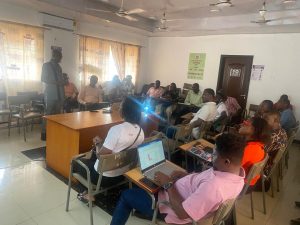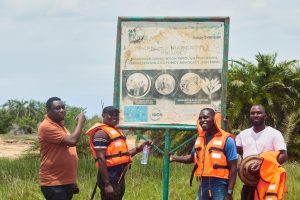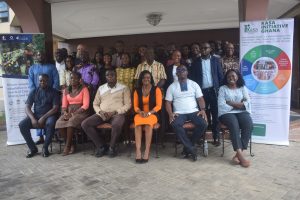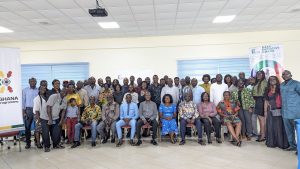ECOLOGICAL RESTORATION FOR COMMUNITY LIVELIHOODS PROJECT (ERECOL)
The project supported by Avina foundation aims to improve resilience of keta Lagoon Complex Ramasr site to climate change effects through mangrove vegetation restoration actions. Implemented by Kasa initiative, this initiative will utilize nature based solutions to mitigate climate change at the community level. The project also seeks to improve community knowledge on ecological importance of mangroves towards maximum support for sustainable conservation actions. Kasa has carried out Mangrove restoration actions for 7.5 Hectares of land in partnership with the community as well as community sensitization on the contribution of mangrove to sustainable conservation. The organization also carried out a dialogue on green livelihood which sought to encourage a combination of profitable agricultural production with environmental concerns and sustainability.








